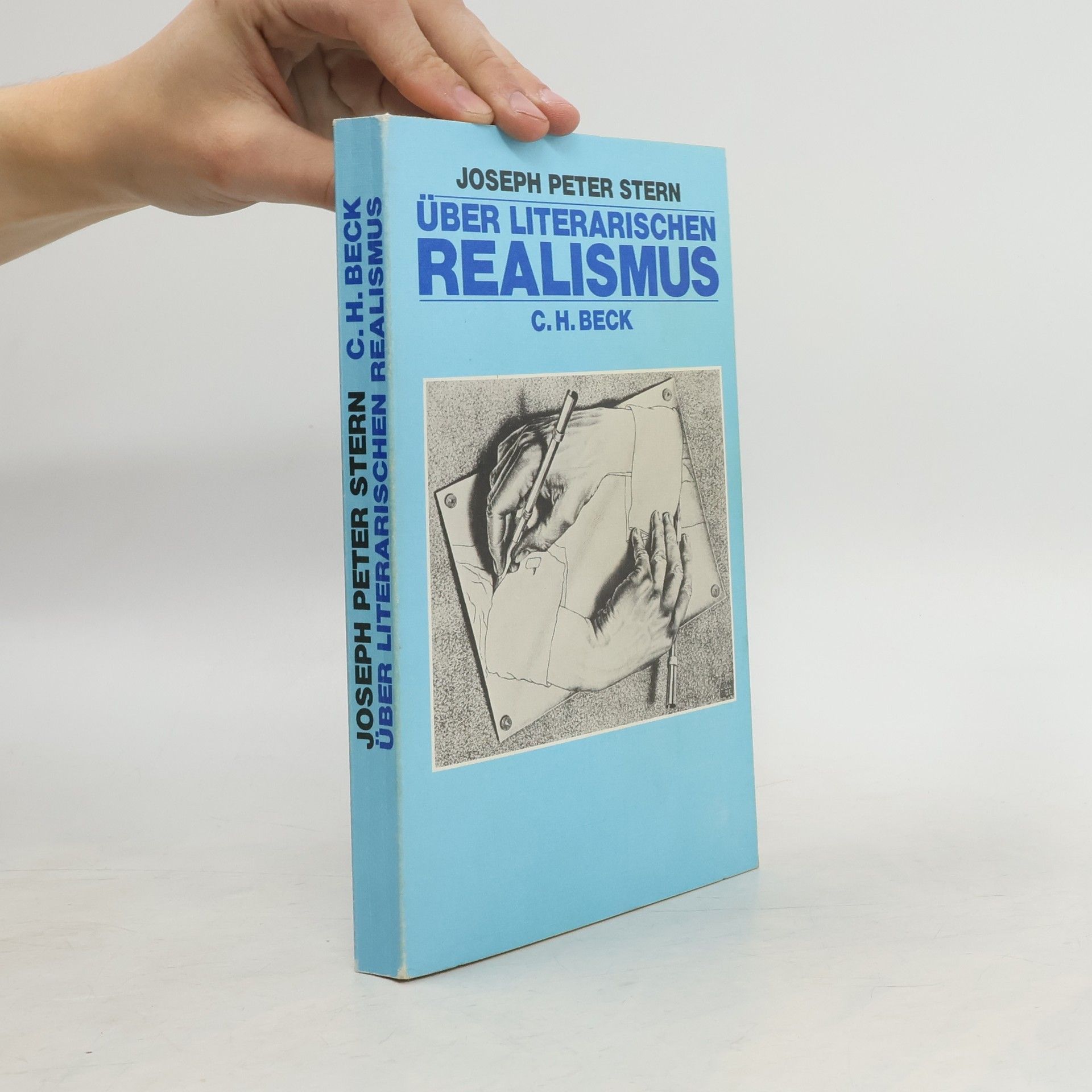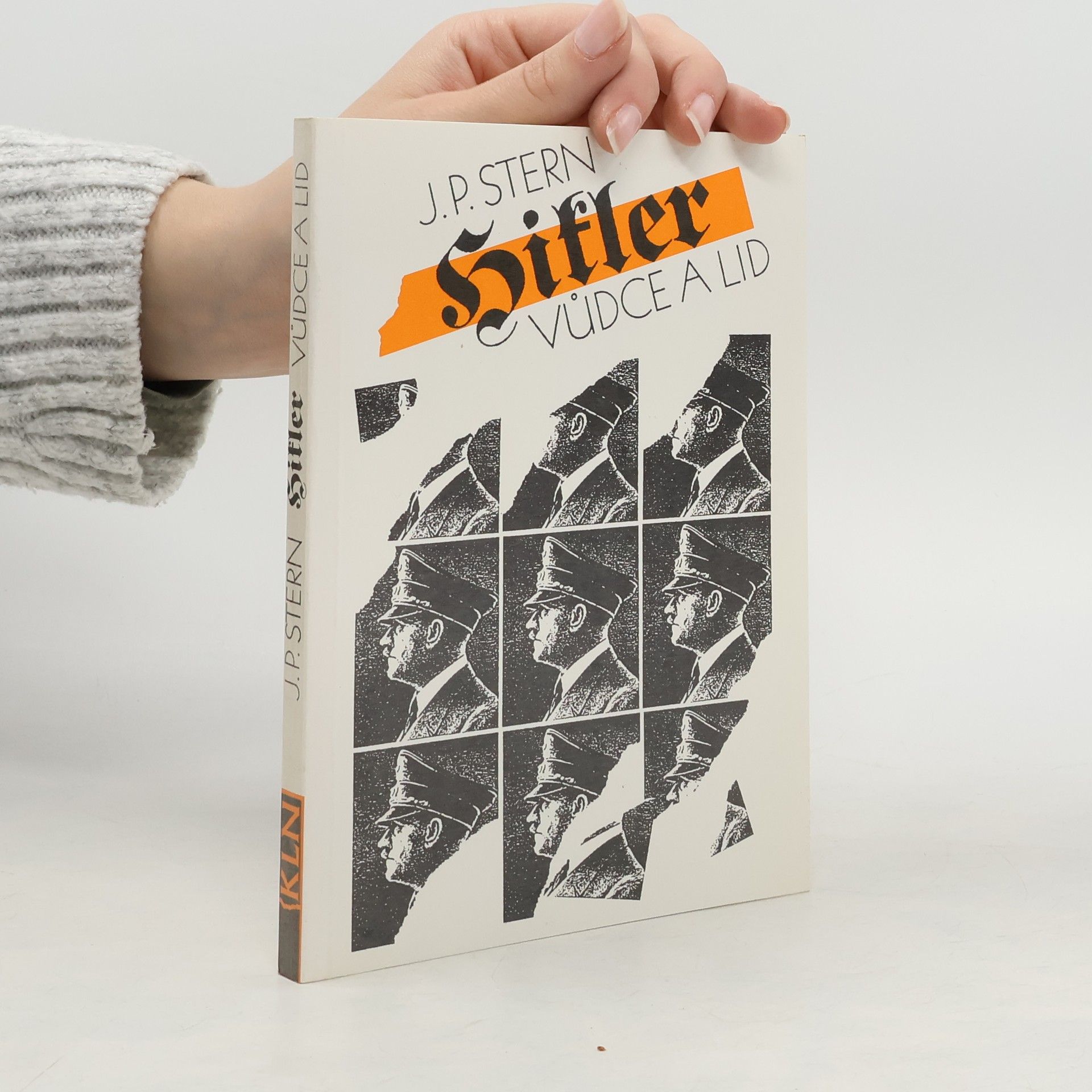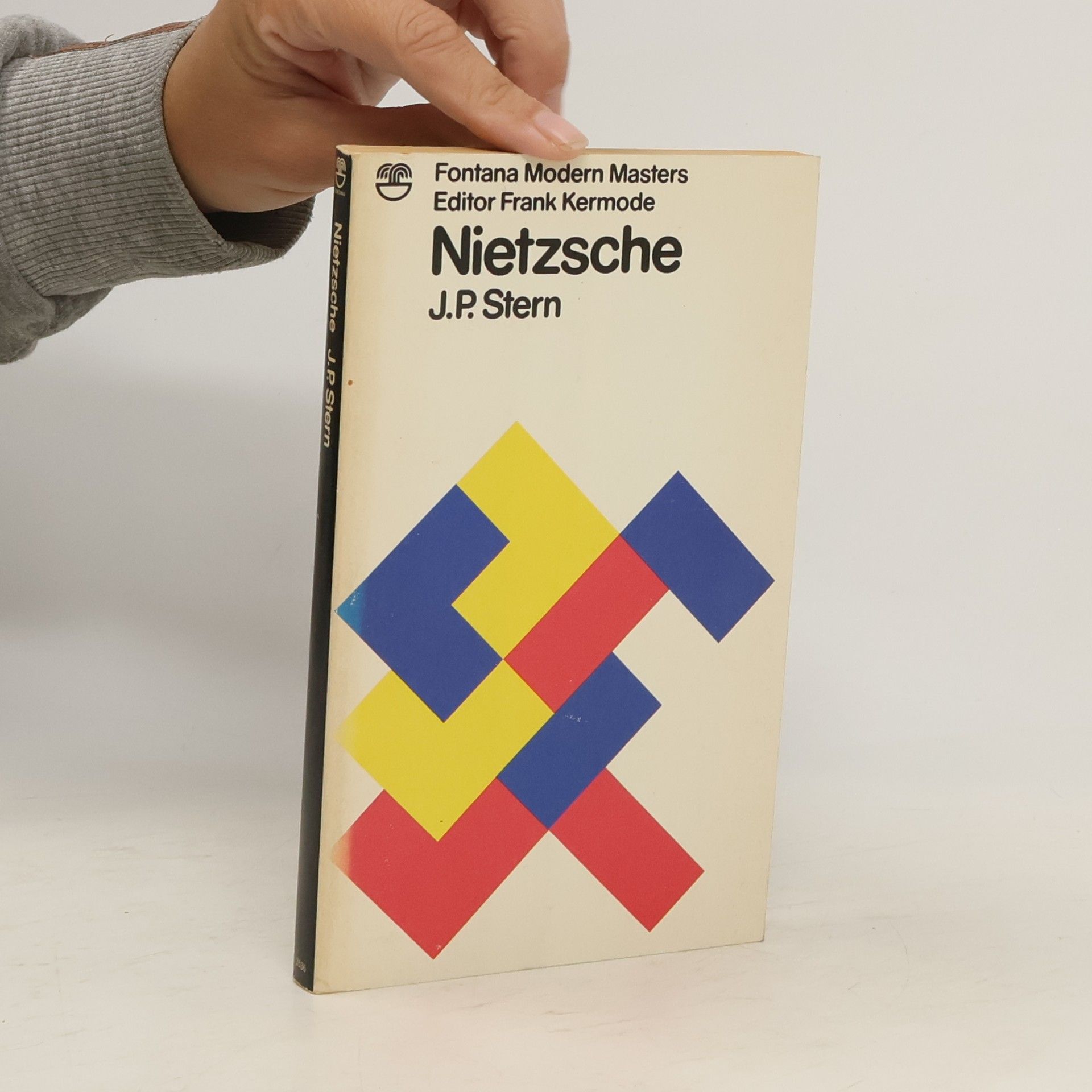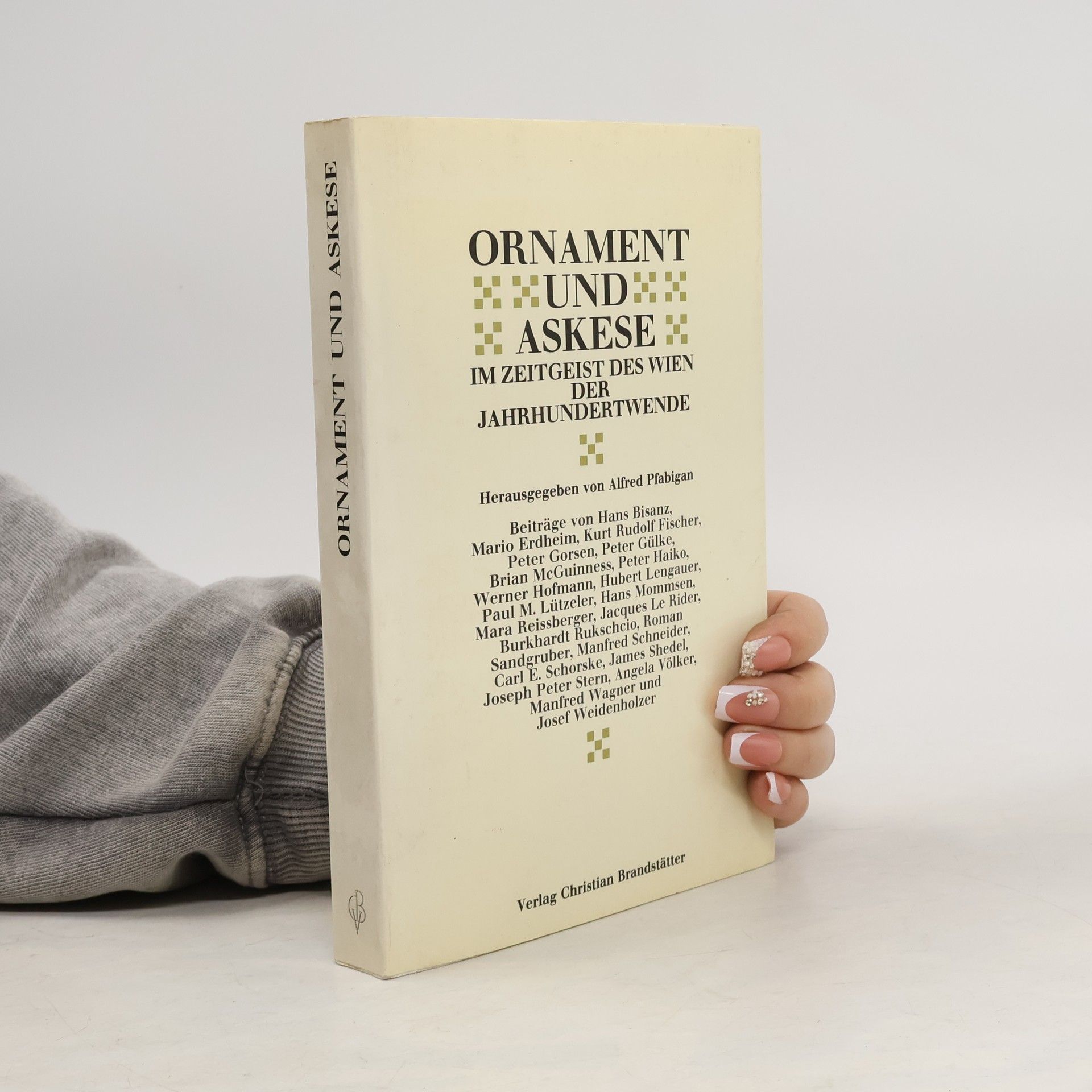Joseph Peter Stern Livres






Nietzsche
- 158pages
- 6 heures de lecture
Together with Marx and Freud, Friedrich Nietzsche (1844-1900) is one of the main sources of twentieth-century thought. His formulations that God is dead, that the world is the product of the will to power, and that true value lies in a morality of strenuousness, have become part of the European experience in our age. While most of Nietzsche's work takes the form of short 'reflections', he also tried to create a major mythology and attempted, finally, a comprehensive philosophical system. In his often contradictory writings— which are concentrated into the brief time-span 1872-88 — he directs his thought again and again at the function and value of truth. Nietzsche was an anti-systemic thinker, yet he understood and systematically 'unmasked' the ethic of praise and blame, of punishment and reward and of the agony of conscience. The book is an exhilarating examination of Nietzsche's work: in a series of analyses of his 'philosophical experiments' J.P. Stern elucidates Nietzsche's existentialism by reference to the main event of his life, and to his astounding range of styles and vision of language.
This book studies individual works by twelve major writers of German modernism, including Thomas Mann, Musil, Brecht and Rilke, in relation to the history of the twentieth century. It explores the theme of the 'dear purchase', an ideal of moral strenuousness and sacrifice seen as characteristic of Germany after Nietzsche, and reveals the underlying flaw in this notion as a self-justifying value. In this context, it considers the renaissance of German poetry after 1900, the impact of the War of 1914, its aftermath in uncertainty and relativism, and attitudes to the Hitler period, and finally juxtaposes Mann's Felix Krull and Kafka's story Josephine as a deliverance from the value-system of the title. The Introduction, partly autobiographical, traces J.P. Stern's preoccupation with this interpretation of his material in many of the books he published (especially those concerned with Nietzsche and Hitler), and pays tribute to Wittgenstein's influence on his thinking.
Hitler. Vůdce a lid
- 194pages
- 7 heures de lecture
Kniha pojednávají o době a příčinách Hitlerova nástupu k moci. Populismus, chyby stávajících politiků a zěry, které jsou výstrahou i pro současnost
Hitler
- 233pages
- 9 heures de lecture
Ornament und Askese im Zeitgeist des Wien der Jahrhundertwende
- 311pages
- 11 heures de lecture
German
